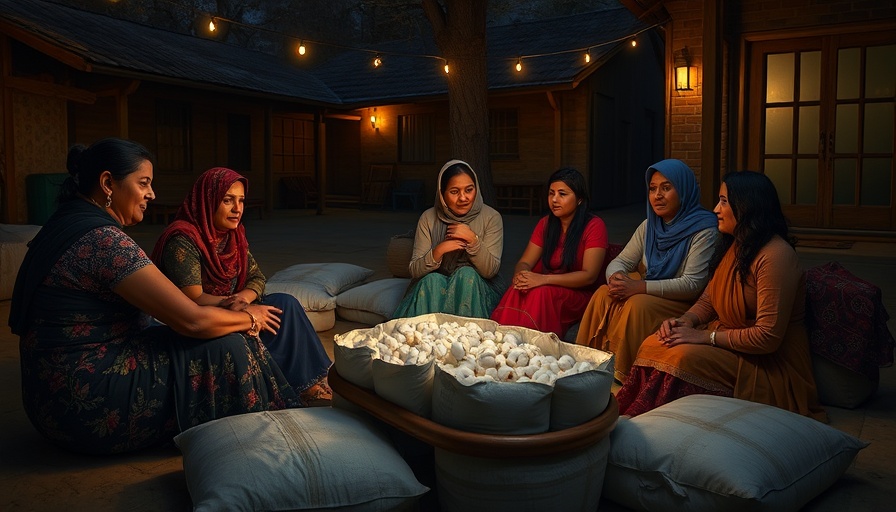
Highlighting Sudanese Feminism in Cinema
At the Venice Film Festival, Susanna Mirani's Cotton Queen has captivated audiences, bringing to light the rich yet tumultuous narrative of Sudanese life. Set against the backdrop of a rural village steeped in a history of cotton farming, the film offers a poignant exploration of a young girl's journey of empowerment amid cultural and political strife. Nafisa, the protagonist, grows under the wise guidance of her grandmother, hearing tales of resistance against colonial forces that have historically exploited their land and resources.
In 'Sudanese feminist drama Cotton Queen warmly received at Venice Film Festival', the discussion dives into the intricacies of Sudanese culture and its representation in cinema, exploring key insights that sparked deeper analysis on our end.
The Clash of Cultures and Crisis
While the portrayal of a strong female narrative provides hope and inspiration, the film is further complicated by the contemporary reality of war in Sudan. The filmmakers faced considerable challenges amidst ongoing conflict and displacement, with many actors now refugees, adding layers of personal trauma that resonate deeply in the storytelling. As Mirani notes, this environment of destruction contrasts sharply with the vibrant cultural life of Sudan, which Cotton Queen seeks to celebrate.
Cotton: A Symbol of Oppression and Unity
The central theme of cotton in the film serves as a double-edged sword, representing both the consequences of colonial exploitation and the fabric of community life in Sudan. Historically, cotton production in Sudan has often been linked to British colonialism, which extracted resources while leaving devastation in its wake. Mirani’s ability to encapsulate these contradictions highlights not only the struggle for preservation of culture but also the resilience of women who play an essential role in this narrative. Nafisa's confrontation with modernity, exemplified by a foreign entrepreneur introducing genetically modified cotton, symbolizes the larger conflict between tradition and progress.
A Cinematic Reflection on Resilience and Resistance
Mirani’s work is more than just a film; it is a platform for showcasing the beauty and complexity of Sudanese life, going beyond the typical negative narratives often depicted in Western media. This is particularly significant in the current global context, where Sudan is often associated solely with war, poverty, and instability. Cotton Queen dares to present an alternative perspective, showcasing the vibrancy of Sudanese culture and the dynamic roles women play in it, as a counter-narrative to the socio-political crises engulfing the nation.
Global Recognition and the Future of Sudanese Cinema
As Cotton Queen garners accolades on global platforms like the Venice Film Festival, it opens the door for more Sudanese stories to reach international audiences. This can potentially lead to greater investment in Sudanese cinema, bridging the gap in representation and offering a nuanced understanding of the region’s complexities. Mirani’s film not only enhances cultural diplomacy but also presents opportunities for international collaboration in film, fostering a new wave of storytelling that reflects the real voices and experiences in Africa.
The Role of Cinema in Social Change
Films like Cotton Queen serve as crucial historical documents that capture the realities of a time and place, but they also can inspire action and awareness among audiences worldwide. By shedding light on the stories of resilience coming out of conflict zones, filmmakers like Mirani are empowered to foster social change through their art. As viewers share these narratives, they contribute to dismantling stereotypes and building a more comprehensive understanding of Sudan and its people.
In conclusion, Susanna Mirani’s Cotton Queen stands as both a triumph in cinema and a clarion call for the acknowledgment of Sudan’s rich cultural history and the plight of its people. As audiences around the world embrace this story, the hope is for increased dialogue and awareness of the underlying issues facing Sudan today—creating pathways for solidarity, understanding, and action.
 Add Row
Add Row  Add
Add 




Write A Comment